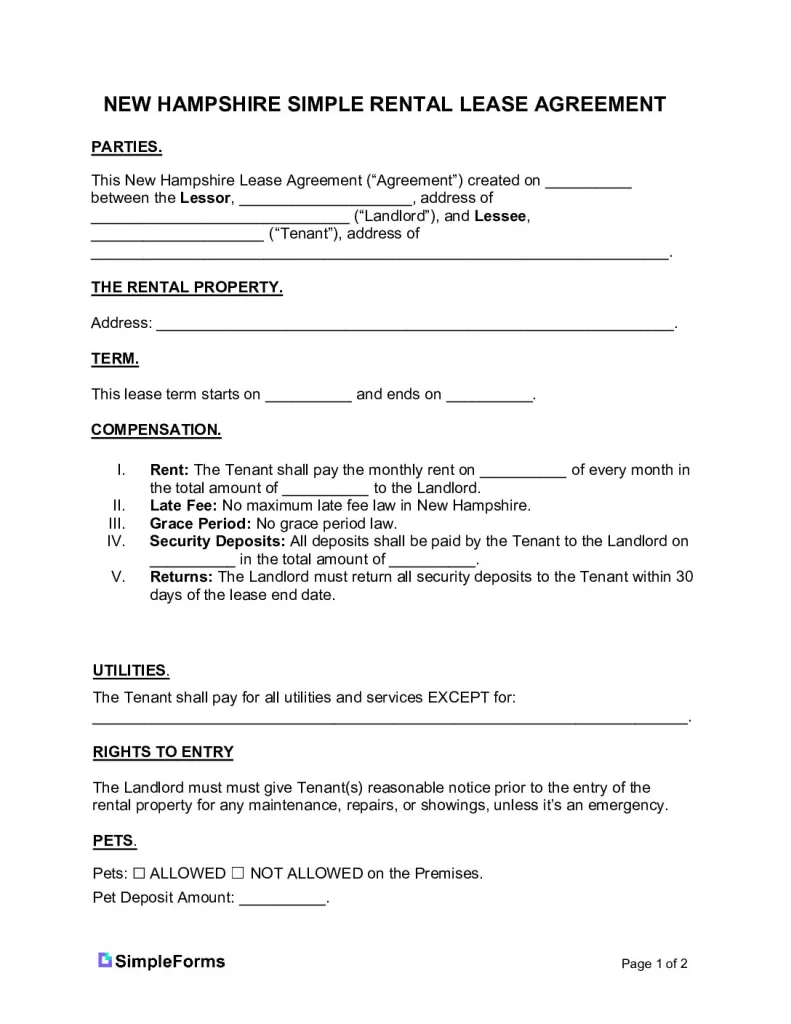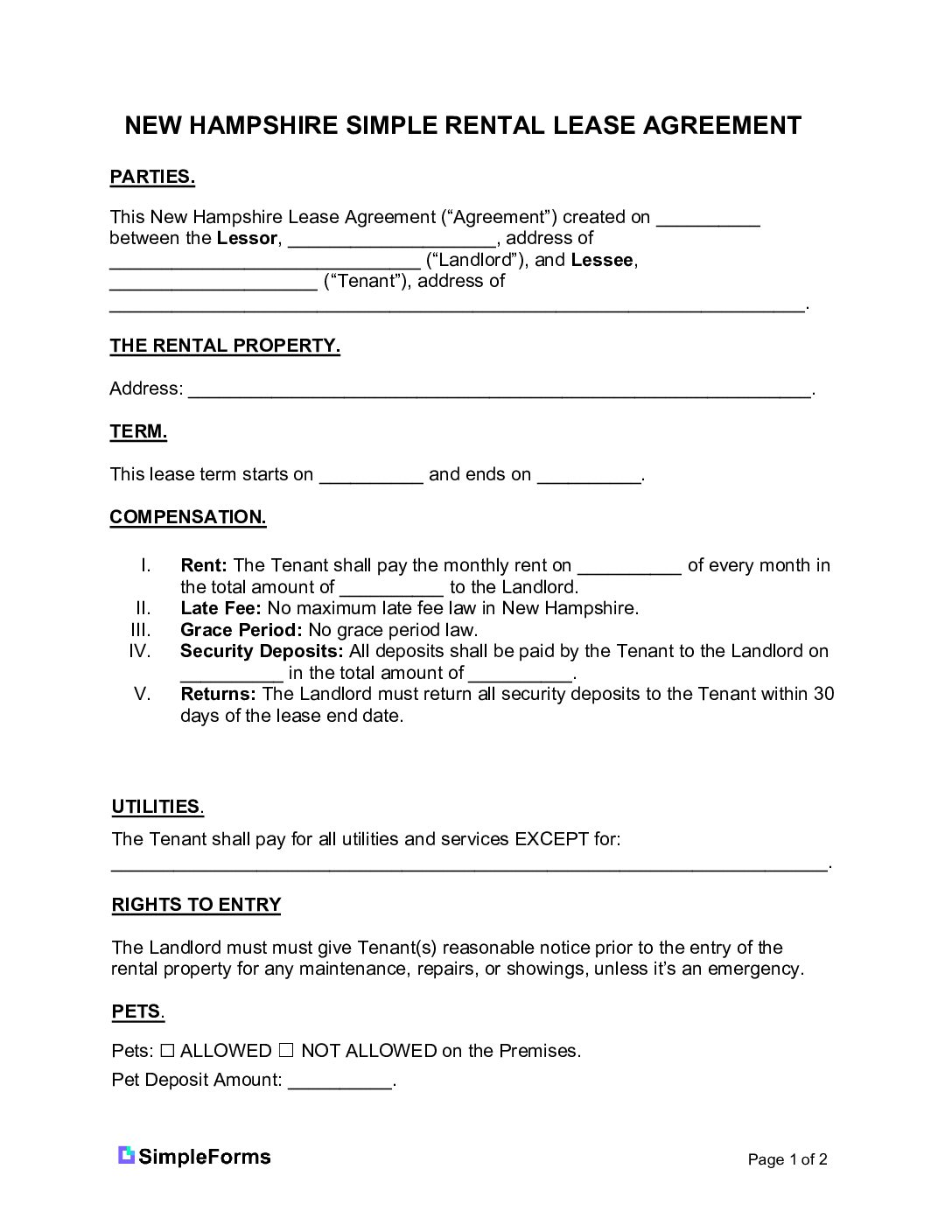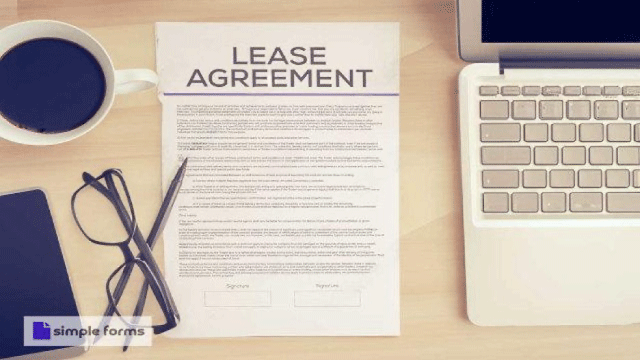A New Hampshire lease agreement binds both the landlord and tenant to the terms outlined in the rental contract. This includes the rent amount and the responsibilities of each party.
Options By Type
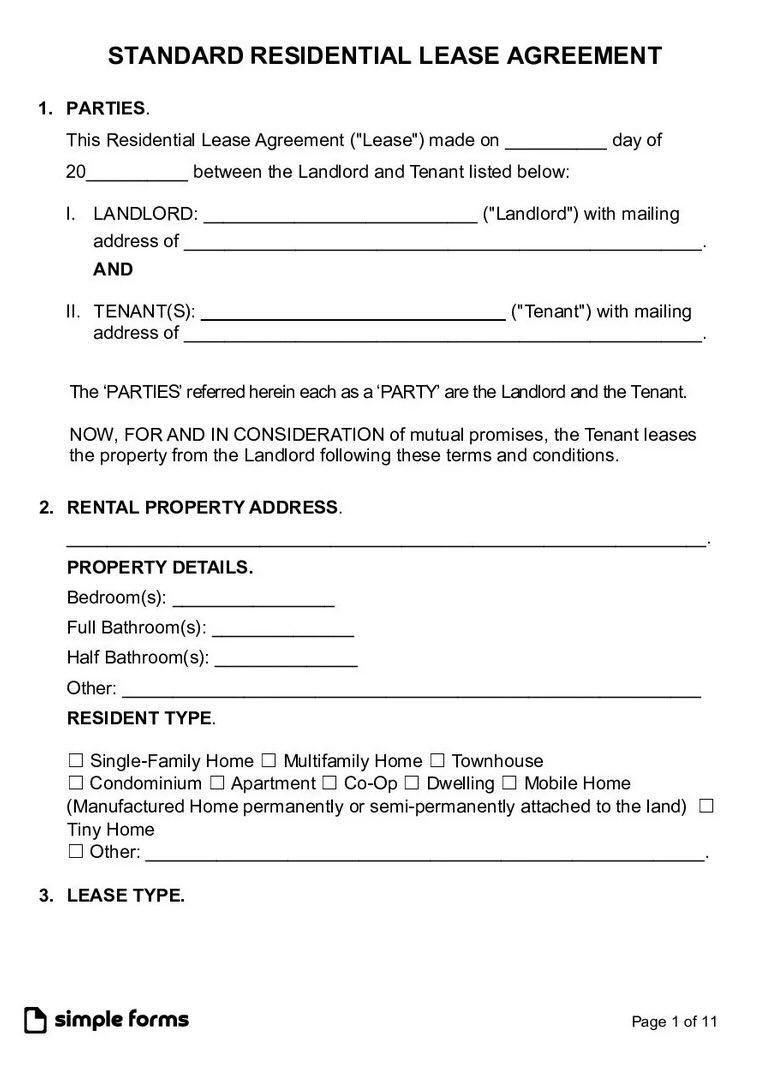 Standard Residential Lease Agreement Standard Residential Lease Agreement
|
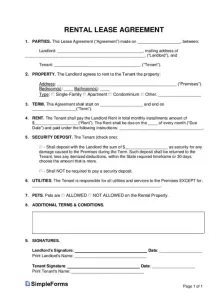 Simple (1-Page) Lease Agreement Simple (1-Page) Lease Agreement
|
Most Recent US Home Facts
- Population (2023): 334,914,895
- Median Households (2022): 125,736,353
- Median Household Income (2022): $75,149
- Owner-occupied Households (2022): 64.8%
Source: U.S. Census Bureau
New Hampshire Lease Agreements Must Include the Following
Required Disclosures (3)
- Lead-Based Paint Disclosure
- Repair Notice
- Security Deposit Receipt
Source: § 540-A:6(I)(c)
Security Deposit
Maximum Amount – The maximum amount is the higher value number of one-months’ rent or $100.
Returning to Tenant – Landlords must return all deposits within 30 days of the lease end date. An itemized list is required if any deductions are taken out of the security deposit.
Source: § 540-A:6(I)(a)
Landlord Access
General Access – Landlords must give Tenants reasonable notice prior to entering rental property.
Emergency Access – Landlords can access the rental units in an emergency.
Source: § 540-A:3(V)
Paying Rent
Grace Period – No grace periods in the state of New Hampshire.
Maximum Late Fee – Landlords can charge any amount for late rent as there are no laws governing late fees in New Hampshire.
NSF Fees – No laws mandating NSF fees in New Hampshire.
Source: § 540:13-(I)
New Hampshire Lease Agreement Form Example
https://simpleforms.com/wp-content/uploads/2024/04/New-Hampshire-Simple-1-Page-Residential-Lease-Agreement.pdf
